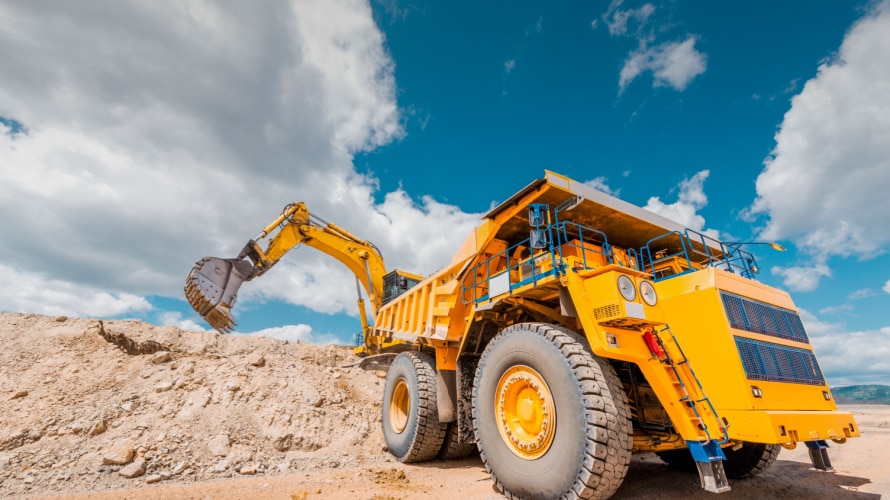Choosing the Right OTR Tires: Factors to Consider for Your Industrial Needs
February 27, 2024
Uncategorized

When it comes to heavy-duty industrial equipment, having the right OTR (Off-The-Road) tire for your equipment is crucial. These specialized tires are designed to withstand the most challenging conditions and ensure optimal performance and safety. In this blog, we will delve into what OTR tires are, the industries that rely on them, and why choosing the right ones is
essential for your business.
What are OTR (Off-The-Road) tires, and what types of heavy equipment and industries rely on them?
Off-The-Road (OTR) tires are rugged, heavy-duty tires crafted explicitly for use in challenging terrains and environments. They are used in various industries that require heavy equipment to operate efficiently. Some heavy equipment and industries that rely on OTR tires include:
Mining: OTR tires are a staple in the mining industry, they used on haul trucks, loaders, and excavators to transport materials in demanding, rocky conditions.
Construction: In construction, OTR tires are on equipment like bulldozers, graders, and scrapers, helping them navigate rough terrain and handle heavy loads.
Agriculture: Farming equipment such as tractors, combines, and grain carts benefit from OTR tires, allowing farmers to work in muddy fields and on uneven surfaces.
Forestry: OTR tires are essential for logging operations, equipping skidders, log loaders, and forestry equipment to maneuver through dense forests.
Port and Container Handling: Large container handling equipment at ports and logistics centers rely on OTR tires to move massive containers efficiently.
Why is selecting the right OTR tires crucial for optimizing performance and safety in industrial applications?
Choosing the correct OTR tires is paramount for several reasons:
Safety: OTR tires are responsible for supporting the immense weight of heavy equipment. Selecting the wrong tires can lead to instability and accidents, endangering operators and bystanders.
Performance: The right OTR tires improve equipment performance, enhancing traction, fuel efficiency, and overall productivity.
Durability: Industrial environments can be punishing, with sharp rocks, debris, and abrasive surfaces. OTR tires are built to endure these conditions, minimizing downtime and repair costs.
Cost-Efficiency: Investing in the right OTR tires initially may seem expensive, but it pays off in the long run by reducing maintenance and replacement expenses.
What factors should businesses and equipment operators consider when choosing OTR tires for their specific needs?
When selecting OTR tires, businesses and operators should consider the following:
Terrain: Analyze the type of terrain the equipment will be operating on – whether it is rocky, muddy, or abrasive. Different terrains require different tread patterns and tire compounds.
Load Capacity: Determine the maximum load capacity needed for your equipment to ensure safety and optimal performance.
Size: Select the correct tire size compatible with your equipment, include both the rim size and overall diameter.
Tire Type: Choose between radial and bias-ply tires based on your equipment’s requirements and the application.
Brand and Quality: Choose reputable brands known for producing high-quality OTR tires.
In conclusion, selecting the right OTR tires for your industrial needs is a decision that impacts safety, performance, and cost-effectiveness. Take the time to assess your equipment, terrain, and load requirements. Do not hesitate to consult with experts at TIRECRAFT for guidance to make the best choice for your business.
Back


